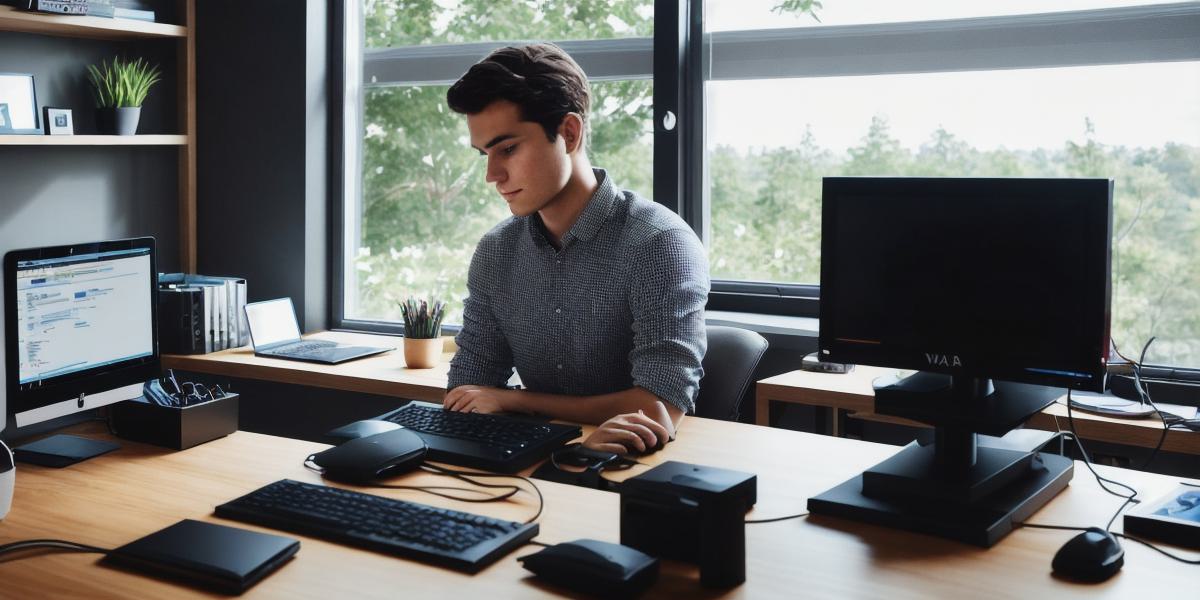There are many different software programs available for game development, depending on your skills and preferences. Some popular options include Unity, Unreal Engine, Construct 3, Godot, and GameMaker Studio. It’s important to choose a program that suits your needs and learn how to use it effectively.
- How do I find inspiration for my game?
Finding inspiration for your game can be challenging, but there are many ways to get started. You can look at other games in the same genre or theme as your target audience, read gaming blogs and articles, watch gaming videos, and attend industry events to gain new insights and ideas. It’s also important to brainstorm with other developers and get feedback on your concepts. - How do I balance my game development project with my day job?
Balancing a game development project with a day job can be challenging, but it’s possible with the right mindset and approach. You need to set clear goals and priorities for your project and stick to them. It’s also important to be flexible and adjust your schedule if necessary. You can use productivity tools like Trello or Asana to keep track of your tasks and progress. - How do I find freelance game development work?
Finding freelance game development work can be challenging, but there are many ways to get started. You can look at job boards like Upwork or Freelancer, attend industry events, join online forums and communities, and network with other developers. It’s important to have a strong portfolio that showcases your skills and experience, and to market yourself effectively to attract clients. - What are some common mistakes game developers make?

There are many common mistakes that game developers make, including not defining their vision clearly, not developing their skills enough, not building a strong portfolio, not networking with other developers, not staying up-to-date with industry trends, not monetizing their games effectively, not promoting their games adequately, and not being persistent in their efforts. It’s important to learn from these mistakes and avoid them when developing your game. - What are some resources for learning more about game development?
There are many resources available for learning more about game development, including online courses and tutorials, books and e-books, video lectures and webinars, podcasts, and industry blogs and publications. It’s important to choose the right resources that suit your needs and learn from them effectively. You can also attend workshops, conferences, and meetups to gain valuable insights and networking opportunities. - How do I find investors for my game development project?
Finding investors for your game development project can be challenging, but there are many ways to get started. You need to have a clear business plan that outlines your goals, target market, revenue streams, and financial projections. You can look for investors through venture capital firms, angel investors, crowdfunding platforms, and incubators. It’s important to pitch your project effectively and demonstrate your passion and dedication towards it. - How do I monetize my game if it’s free to play?
If your game is free to play, there are many ways to monetize it, including advertising, sponsorships, in-app purchases, and subscription models. You need to choose the right monetization strategy that suits your target audience and aligns with your business goals. It’s important to test different monetization strategies and analyze their performance to optimize your revenue streams. - How do I handle criticism and negative feedback on my game?
Handling criticism and negative feedback on your game can be challenging, but it’s an important part of the game development process. You need to listen actively to the feedback, understand the reasons behind it, and use it constructively to improve your game. It’s also important to respond professionally and respectfully to the feedback, thanking the players for their input and acknowledging their feedback. - How do I handle burnout in my game development project?
Handling burnout in your game development project can be challenging, but it’s important to recognize and address it early on. You need to take breaks, prioritize self-care, and delegate tasks if necessary.
